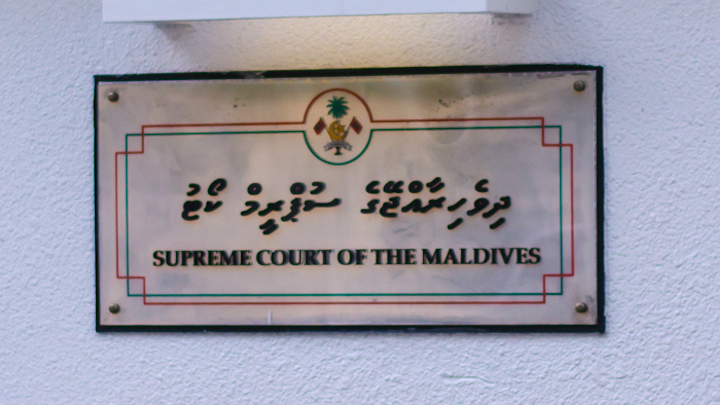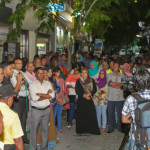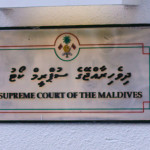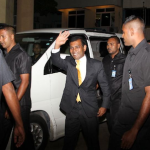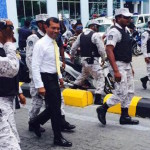Maldivian judges and magistrates are now required to seek permission from the Supreme Court for time off from work.
In a brief announcement, the apex court said Monday: “It has come to our attention that courts are not able to hold hearings as per court schedules because many judges are on leave at the same time.
“Henceforth, judges of any court in the Maldives are required to obtain permission from the Supreme Court to take leave from work.”
The announcement comes a day after a second hearing in a corruption trial against a top tourism official was called off because the Chief Judge of the criminal court Abdulla Mohamed was on leave.
The defendant, Abdulla Ziyath, is standing trial along with former Vice President Ahmed Adeeb over missing public funds from tourism leases.
In a second announcement on the same day, the Supreme Court said judges are also required to seek permission to recuse themselves from any case.
In December, the court prohibited lower courts from going on recess citing matters of national interest. In addition to charges against Adeeb and Ziyath, several high-profile cases are pending at various stages at the courts.
The apex court had seized the power to administer the judiciary by bringing the Department of Judicial Administration under its remit.
In May 2014, the Supreme Court formulated new regulations making it mandatory for judges and judicial employees to seek permission to attend overseas workshops, seminars, conferences, or training programmes.
That September, the court went on to issue new rules requiring judges who want to transfer to a different court to seek approval.
The DJA was first established in 2008 and was to function under the watchdog Judicial Services Commission. The DJA replaced the ministry of justice when the Maldives adopted a new and democratic Constitution in 2008.
In December that year, the interim Supreme Court issued a ruling and brought the department under its remit.
With the enactment of the Judicature Act in 2010, the DJA was reestablished with a mandate for court management, public relations, training of judges, and providing security for judges.
The department was to function under the newly created Judicial Council, which was to comprise of the chief justice, a second Supreme Court judge, the chief judge of the high court, senior judges of the civil, criminal, family and juvenile courts, one magistrate from the north and one from the south.
But the Supreme Court abolished the council and seized its powers in a 2010 ruling that struck down the relevant articles in the Judicature Act.
In a comprehensive report on the Maldivian judiciary released in May 2013, United Nations Special Rapporteur for the Independence of Judges and Lawyers, Gabriela Knaul, wrote that as a consequence of the Supreme Court’s ruling abolishing the Judicial Council, “the only platform for internal communication within the judiciary where difficulties, challenges, experiences and opinions could be exchanged, disappeared.
“Many interlocutors reported that the dissolution of the Judicial Council and the direct control of the Supreme Court over the Department of Judicial Administration have had the effect of centralising administrative decisions in the hands of the Supreme Court,” the special rapporteur stated.
“This has undoubtedly contributed to the strong impression that lower courts are excluded from the administration of justice and decision-making processes.”
The Supreme Court justified the takeover by citing Article 141 and 156 of the Constitution.
While Article 141(b) states that the Supreme Court “shall be the highest authority for the administration of justice in the Maldives,” Article 156 states: “The courts have the inherent power to protect and regulate their own process, in accordance with law and the interests of justice.”
Critics have said the court is misconstruing Article 156, arguing that the administration of justice and the administration of the courts are different.

